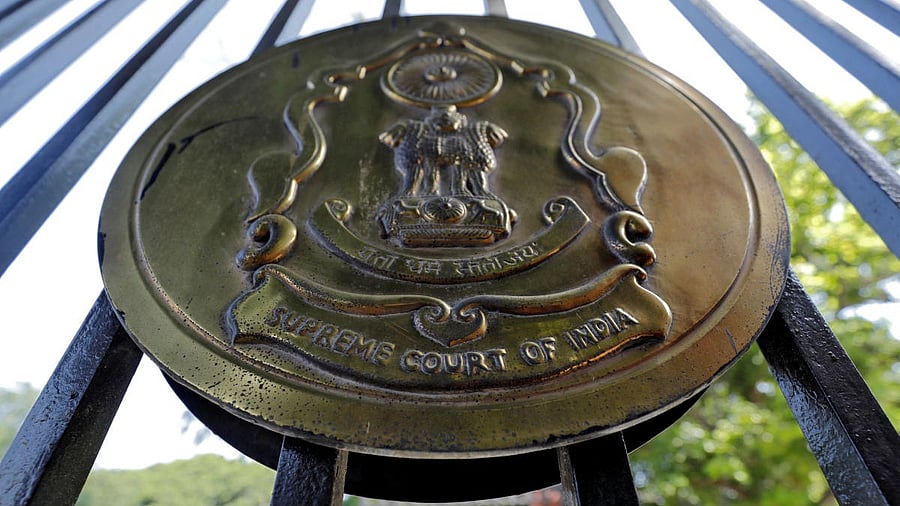
The emblem of the Supreme Court is seen on the gate of the apex court.
Credit: Reuters Photo
New Delhi: The Supreme Court on Friday rejected a plea for directions to the Centre for holding the delimitation exercise to increase the Assembly seats in Andhra Pradesh and Telangana.
A bench presided over by Justice Surya Kant declined to accept the contention of discrimination vis-a-vis the Union Territory of Jammu and Kashmir on the ground that the provisions dealing with delimitation in states were different when compared to union territories.
The bench also referred to the distinction between the governance of states and union territories. “Jammu and Kashmir having been re-constituted as a Union Territory under J&K Reorganisation Act is not bound by the provisions of chapter 3 of part VII of the Constitution,” Justice Kant said, reading out excerpts of the judgment pronounced on behalf of the bench.
The court found no merit in the contention that delimitation exercise only in the Union Territory of Jammu and Kashmir and excluding Andhra Pradesh and Telangana was unconstitutional.
The judgment was rendered on a plea filed by one K Purushottam Reddy, seeking directions to the Centre to operationalise Section 26 of the Andhra Pradesh Reorganization Act.
The court also pointed out that Article 170(3) acts as a constitutional bar in entertaining the plea for delimitation.
The bench noted that Section 26 of the AP Reorganisation Act was subject to the constitutional provision (Article 170) dealing with delimitation, according to which delimitation can be held only after publication of the figures of the census scheduled in 2026.
Earlier, during the hearing, it was argued that delimiting the Assembly and parliamentary constituencies of only the newly minted Union Territory of Jammu and Kashmir, with the exclusion of Andhra Pradesh and Telangana, created an unreasonable classification and was therefore unconstitutional.
Additional Solicitor General K M Nataraj, who appeared for the Centre, had cited Section 26 of the Andhra Pradesh Reorganization Act and contended that the process will have to wait until the 2026 census.
Referring to the delimitation exercise undertaken for J&K, the petitioner's counsel argued that its delimitation commission was the only commission to be appointed after the Andhra Pradesh Reorganization Act came into force.
The bench sought to know if he meant that as and when the power was exercised by the Centre under the Delimitation Act, it must apply to all states uniformly.
Nataraj submitted that delimitation was an enormous exercise and could not be undertaken overnight.
The petitioner's counsel also argued that Andhra Pradesh and Telangana were left out but States of Assam, Arunachal Pradesh, Manipur and Nagaland were included in the prior delimitation notification issued by the Centre.
